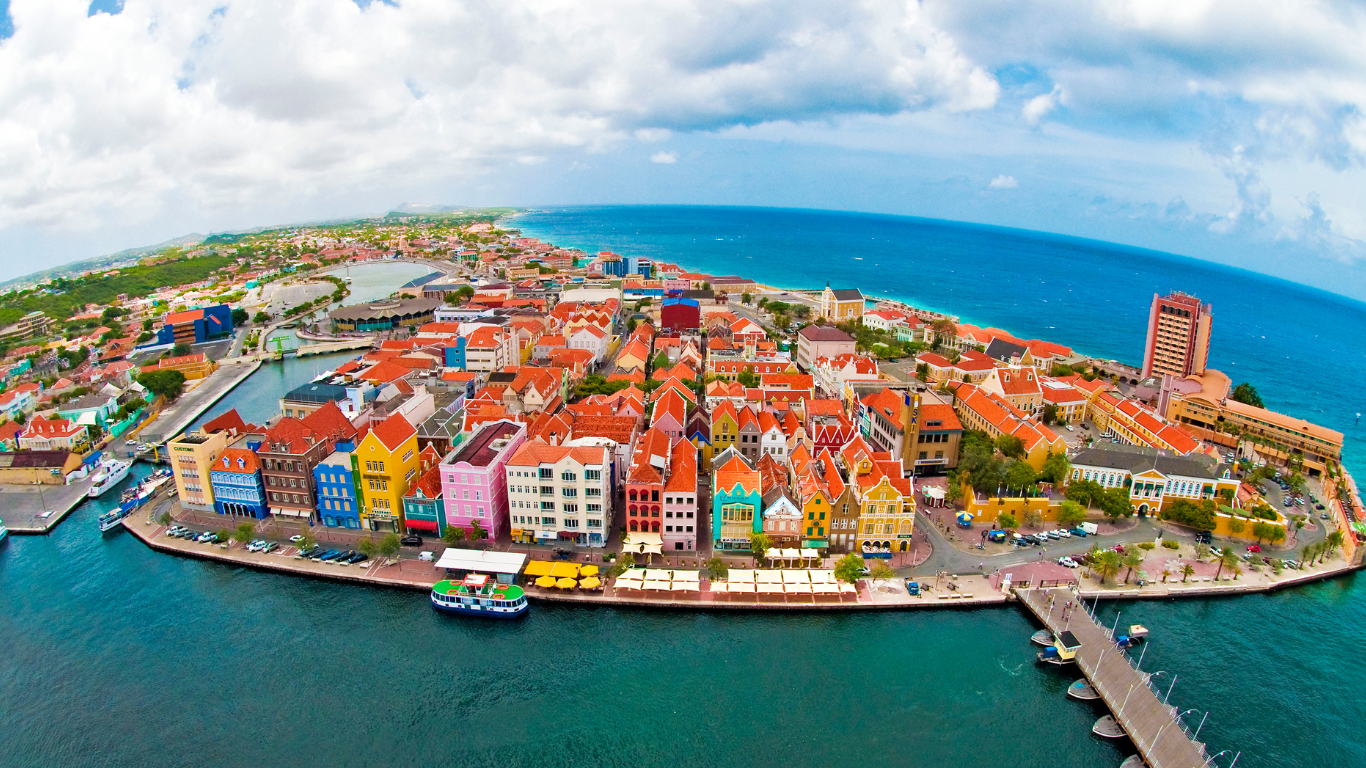
Finance
Banks on Curaçao
Money Matters on Curaçao: Everything you need to know about banks, payments, and currency on the Island
Curaçao has a mature and stable banking system that serves not only local residents but also attracts international clients, entrepreneurs, and home buyers. Whether you want to buy a home, open a bank account, or simply exchange your vacation money, there are plenty of financial options on the island. The financial sector is regulated by the Central Bank of Curaçao and Sint Maarten (CBCS), which ensures safe and responsible banking practices. In this article, we answer the most frequently asked questions about money matters in Curaçao — useful whether you're planning to live, spend the winter, or invest here.
Which banks operate in Curaçao?
Curaçao has a number of commercial banks, insurance companies, and lenders. The most well-known banks include:
- MCB – Maduro & Curiel’s Bank
- Orco Bank N.V.
- RBC Royal Bank
- Banco di Caribe N.V.
- Vidanova Bank N.V.
- CHB – Centrale Hypotheekbank
- Guardian Group
These institutions offer a wide range of services, from day-to-day banking and mortgages to investment accounts and international transfers.
Can I exchange euros at the bank in Curaçao?
Yes, you can exchange euros at nearly all banks in Curaçao for the local currency, the Caribbean guilder (XCG). You’ll need to present a valid ID. Exchange rates vary between banks, so it pays to compare. Keep in mind that most banks close for lunch between 12:00 PM and 2:00 PM and generally close for the day around 3:30 PM. It’s best to go in the morning. Be prepared for potentially long queues.
Can I pay with US dollars in Curaçao?
Yes, US dollars are widely accepted, especially in tourist areas, hotels, and restaurants. The standard exchange rate in shops is USD 1 = XCG 1.82. Note that any change is usually given in guilders.
How much cash can I bring to Curaçao?
There is no legal limit to the amount of cash you can bring, but if you carry more than USD 10,000 (or the equivalent in other currencies), you are required to declare it at customs upon arrival and departure.
Can I open a bank account in Curaçao as a non-Curacao citizen?
Yes, as a non- national, you can open a bank account in Curaçao. You will typically need the following:
- A valid passport
- Proof of address (such as a utility bill or official extract)
- Income statement or bank reference
Some banks also offer the option to open an account online, but requirements and processing times vary. Be prepared for a relatively lengthy application process.
How much money do you need to live in Curaçao?
It depends on your lifestyle and housing situation. As a single person, you’ll need roughly USD 1,400 to 1,600 per month (excluding rent). A family of four will need about USD 3,500 per month. Rental prices for a one-bedroom apartment range from approximately USD 600 to 1,000, depending on location and condition.
How much can you withdraw at an ATM in Curaçao?
Withdrawal limits vary depending on your bank and card type. For example, with an MCB Bankomatiko+ business debit card, you can withdraw up to XCG 1,500 per day. If you're using a foreign bank card, the limits may be lower and additional fees may apply. It's wise to check with your home bank or a local branch.
Which banks are covered by deposit insurance in Curaçao?
Banks regulated by the Central Bank of Curaçao and Sint Maarten are covered by the local deposit guarantee scheme. This protects individual savings and checking accounts up to USD 25,000 per person, per bank. Note: business accounts and investment products are generally not covered. The participating banks include:
- Banco Di Caribe N.V.
- Maduro & Curiel's Bank (Bonaire) N.V.
- Orco Bank N.V.
- RBC Royal Bank N.V.
How can you pay in Curaçao: debit card, credit card, or cash?
In Curaçao, you can pay in several ways:
- Debit card (Maestro or VPay) – widely accepted in supermarkets, shops, and gas stations
- Mobile debit payments – most stores now accept contactless payments via smartphone
- Credit card (Visa or Mastercard) – especially convenient in hotels, restaurants, and car rentals. Note: American Express is often not accepted due to higher fees for merchants
- Cash – still essential for small vendors, local markets, and less touristy areas. For example, it's customary to tip the baggers who help you at the supermarket with XCG 1–2 per bag
For maximum flexibility, it's smart to carry a mix of payment methods.
Final thoughts
Handling money matters in Curaçao is generally straightforward — as long as you’re well prepared. Whether you plan to live, work, or invest on the island, understanding how the banking system works will give you a head start.
At International Fine Living, we don’t just assist with real estate. We also help with practical matters like banking, insurance, and local regulations — so you can focus on enjoying the Curaçao lifestyle, worry-free.
Contact us for personalized advice.
International Fine Living strives to provide accurate information to those buying or selling property in Curaçao. However, due to time constraints, we may not always be able to publish the latest updates. We therefore recommend verifying all information with the appropriate authorities or institutions. No rights can be derived from the content provided.
To our fellow real estate agents in Curaçao: all of our content is protected by copyright. Copying or republishing texts (or parts thereof) is not permitted. Linking to our blog is, of course, always welcome.